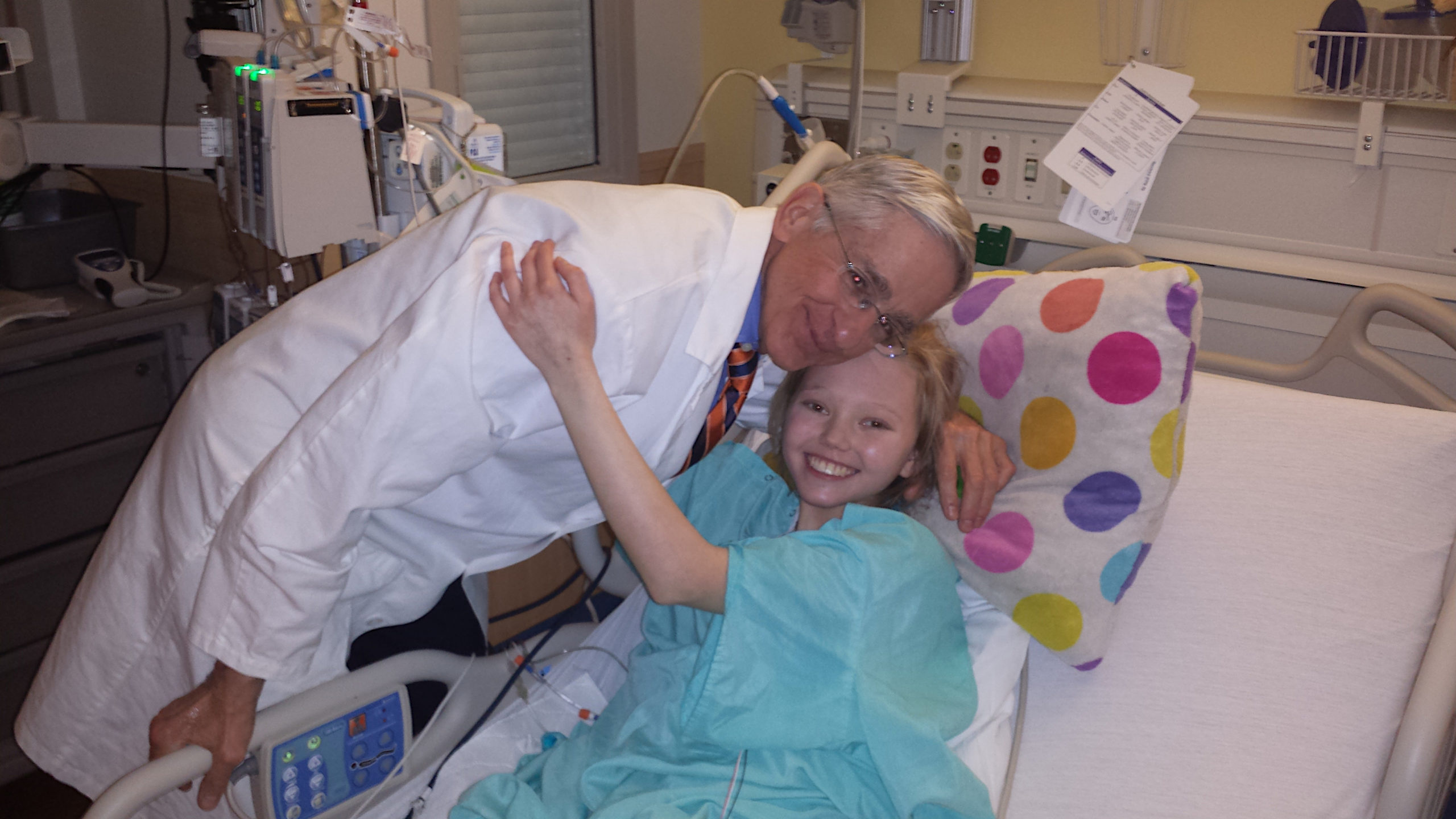When your child receives a diagnosis of IBD, or inflammatory bowel disease, it can be earth shattering in many ways. It’s a frustrating condition to manage and can impact your child’s and family’s quality of life.
While medications to treat IBD have come a long way in the last 15 years to help manage the condition, the unfortunate reality is that they often come with side effects.
Our main goal for treating patients with a new diagnosis of IBD is to get them feeling better quickly by inducing remission. Steroids are often in our first line of treatments because they are effective at reducing IBD symptoms such as diarrhea and abdominal pain.
We typically only need to use steroids for around three months following a diagnosis and about 85-90% of patients’ symptoms respond well to them during this period of time. They can, however, cause side effects for some children.
Because parents frequently ask me how to treat the more common side effects from steroids, I thought it might be helpful to share them here. This is a list of recommendations for managing steroid side effects:
Poor sleep. Steroids can impact your child’s sleep cycle or cause restless sleep. The following suggestions may help:
- Take steroids in the morning, rather than at night, and at a consistent time
- Practice good sleep hygiene by turning off electronic devices; keeping regular bedtime; using bed for sleep only
- Can try melatonin, a natural hormone supplement that can reset your child’s sleep/wake cycles, either over-the-counter (OTC) or with a prescription dose
Weight gain. Steroids can increase your child’s appetite and cause bloating. While the following suggestions may not solve the problem completely, they can make a marked difference:
- Limit salt intake
- Make healthy food choices, such as unprocessed foods
- Daily exercise such as light jogging or walking for 30-60 minutes a day
Mood changes: Steroids may cause your child’s mood to either be anxious or depressed. The best way to help with this is to:
- Reassure your child that this is normal and a result of the medication
- Get good sleep
- Exercise daily
- Speak to your child’s doctor if mood changes are extreme
Nausea or upset stomach. Steroids can lead to irritation along the stomach lining. You can help this by:
- Taking a long-acting antacid such as Prilosec or Prevacid once or twice a day
- Taking steroids on a full stomach
- Chewing Tums can help with heartburn
Acne. Steroids can cause acne problems for some teenagers. The good news is acne should improve when steroids are stopped. Following good facial hygiene can help:
- Avoiding cosmetics
- Washing face before bed, after exercise, etc
- Taking OTC acne medications like benzoyl peroxide may help
Weakened immune system: While steroids decrease inflammation in the intestines, it also decreases the immune system’s ability to fight bacterial and viral infections. During the period of time that your child is on steroids, you can reduce the risk of infection by:
- Practicing good hand hygiene
- Making sure vaccinations are up to date, including a yearly flu shot
- Steering clear of people who are sick, when possible
It’s important to note that not every child will have every side effect from steroids. In fact, some children may have very minimal side effects. Please contact your child’s doctor if any symptoms seem out of the ordinary.
Some parents also ask about alternative, holistic therapies for their child with IBD. We try to practice evidence based medicine (making informed decisions based on previous research studies) as much as possible but the reality is that many alternative and holistic therapies have not been studied. That does not mean that they can’t or won’t be effective. I do recommend speaking to your doctor about it before trying any complimentary therapies because some supplements can cause unwanted organ toxicity or suppress the immune system further.
If you have questions, or would like to request an appointment, please contact our Schubert-Martin Inflammatory Bowel Disease Cente





